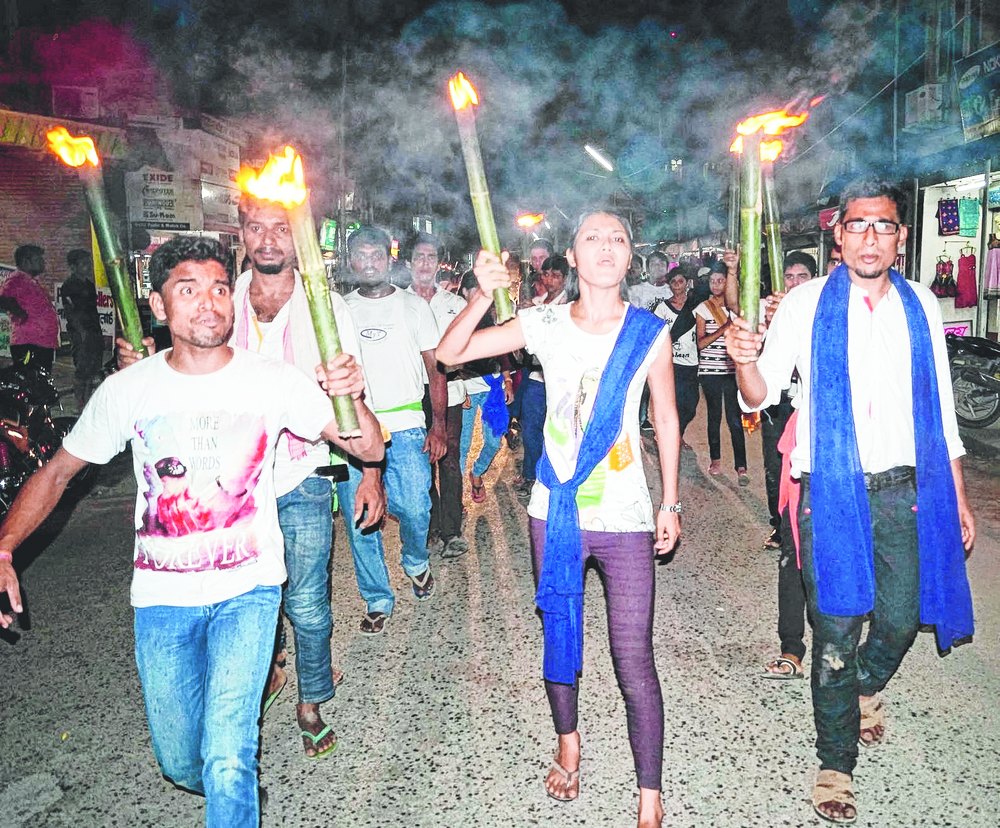
Jorhat, July 28: The draft Prevention of and Protection from Witch-hunting Bill 2015 was approved by the Assam cabinet in a sitting at Dispur last night taking it one step closer to becoming a law.
An official of the home department said after the cabinet ratification, chaired by the chief minister yesterday, the bill would be placed before the Assembly in its next session scheduled to start from August 10.
Social activist Dibyajyoti Saikia said he was very happy with the development, having pursued this cause for the past five years.
"More than 80 people have been killed in witch-hunting in the state between 2008 and 2013 and it had become imperative for a strong law to curtail these killings. Many times superstitious belief in witches is taken advantage of by unscrupulous elements who direct the anger of a village against a woman and her family, branding them witches in order to grab property or for some other such reasons," he said.
Saikia said Jharkhand, Bihar and one or two other states had separate laws on anti-witchhunt and that there was no reason for Assam not to have one, given the rising incidents of such killings, harassment and torture.
He also said this was one of the most stringent laws dealing with witch-hunt and should be able to prevent more such incidents in the state.
Earlier Saikia, who headed Brothers, a socio-welfare organisation, had protested peacefully in front of Dispur Last Gate demanding enactment of such a law at the earliest.
On June 16, various organisations, including Birubala Mission and the political science department of J.B. College, along with Omiyo Kumar Das Institute of Social Change and Development had presented incorporations into the draft bill on a website, which is under construction and had been created by the government earlier this year, to make the law more effective.
Bolin Hazarika, head of the political science department, also hailed the ratification by the cabinet and hoped that the bill would soon become an act so that it could be a deterrent to those that exploit, torture and kill others in the name of witchcraft.
Saikia was happy that police too would be taken to task if they fail to file chargesheets, make arrests or register complaints.
Advocate Rintu Goswami said there were many laws but in 90-92 per cent of the cases, the criminals get away not because of the absence of the law but because of shoddy investigation by the police, who seldom use scientific technology to prove their guilt.
"The same happens in these cases and most of the times the perpetrators get away. There was also no provision for protection of witnesses who would have to return to their remote villages and subsequently face the ire of the villagers," he said.
Goswami called for a special police force to be set up to deal with such cases.
All the advocates who were in favour of the bill, however, said if the mindset of the people had to be changed, proper education against superstitious beliefs was required from school level and it needed to be part of the curriculum, besides creating mass awareness.










